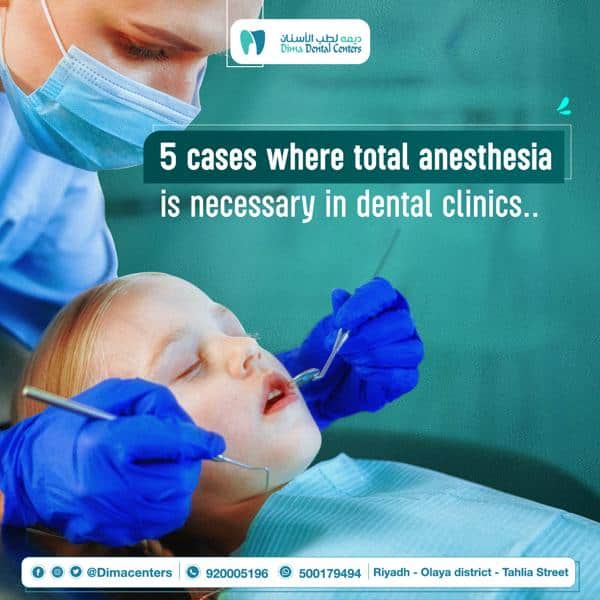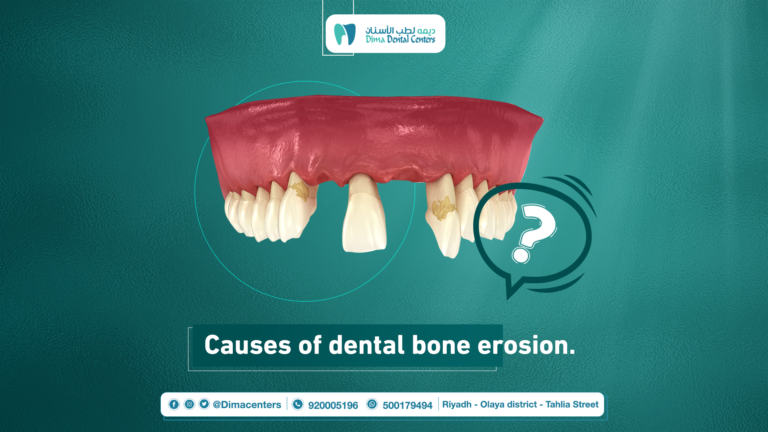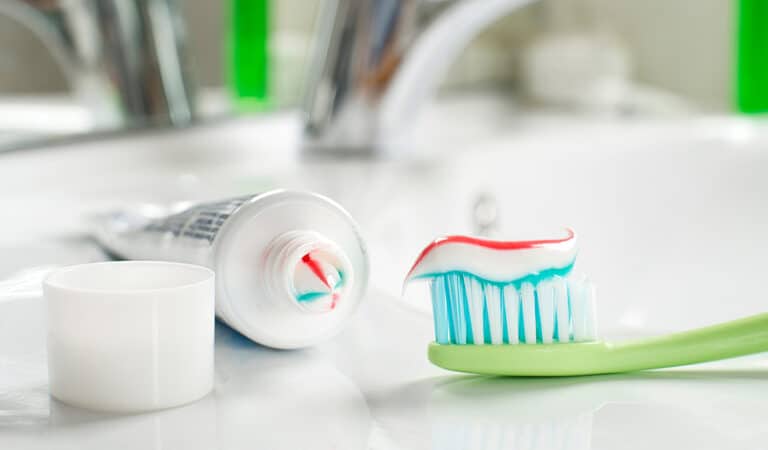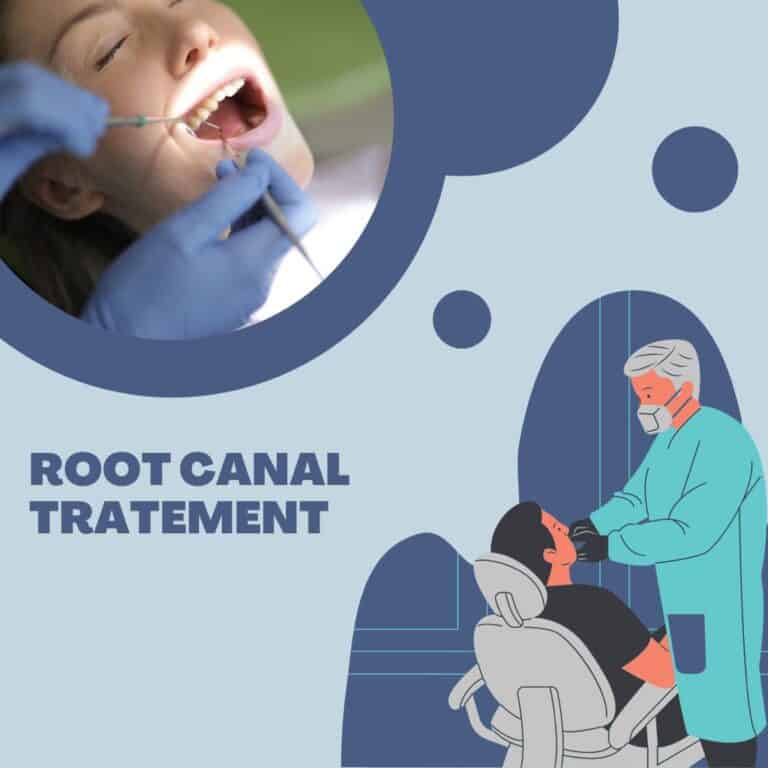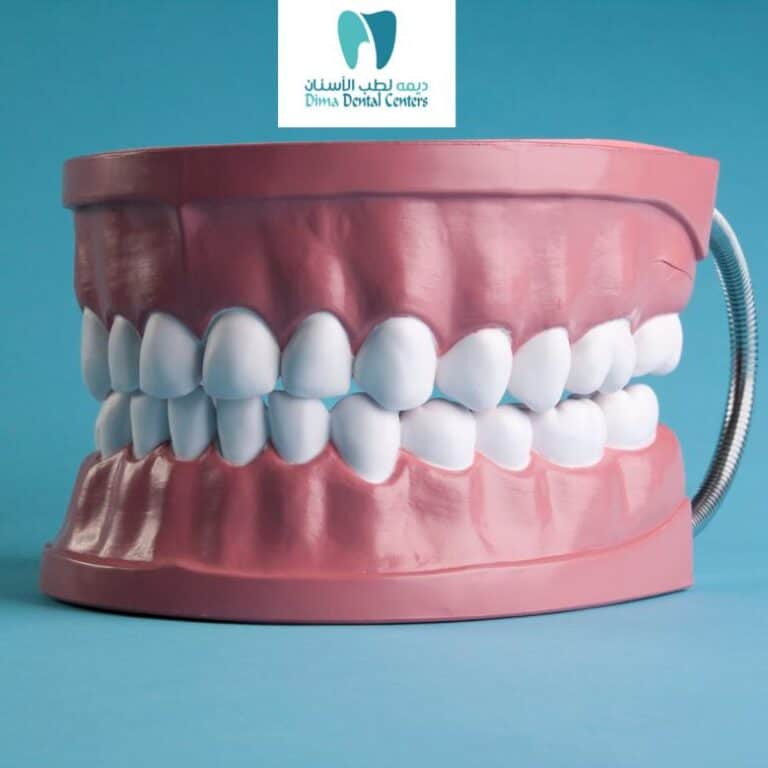Toothache (what is the correct course of action in the event of a toothache)
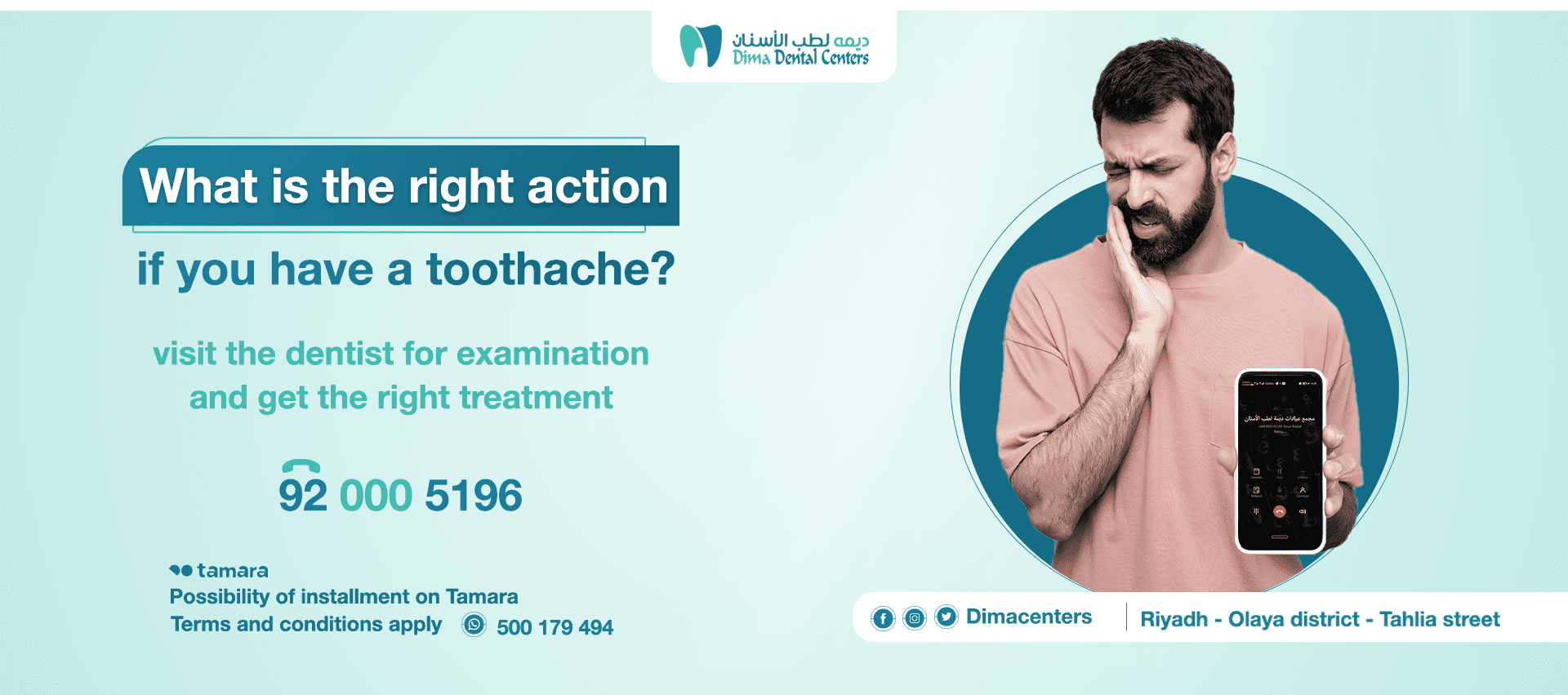
Tooth pain is very common as it hides behind a large number of oral diseases and even disorders of the ear, nose and throat. Do you have a throbbing, sometimes throbbing, pain in your teeth or gums after touching cold or hot food? This symptom is generally similar to dental pain. Often, the presence of a cavity is the most common cause. An abscess is another cause that causes a dental crisis. Then it is an infection with bacteria that originated in the pulp cavity or in the gums. It can also be a matter of pulpitis, when the inflammation affects the dental pulp. Gingivitis, periodontitis, and other bacterial infections can cause severe toothache. It is sometimes not known that sinusitis is another cause that may be responsible; And also when wisdom teeth grow in young people (18-25 years old), especially if their condition is poor.
How does toothache happen?
The tooth has a central organ, the pulp, which contains both blood vessels and nerves that enter the cavity through a very narrow passageway. Dental pulp can be compressed very easily when it is inflamed or infected. At the slightest injury or high fever, vasodilation occurs which increases blood flow and puts pressure on the nerves. These interact by sending a pain signal to the brain.
It may initially manifest as a mild pain that is somewhat tolerable at first but, as it gradually increases, eventually becomes unbearable. It can also come on suddenly, most of the time when you least expect it, and it can be hell. Sometimes you have the impression that it follows the rhythm of a blood vessel beat. Then the pain quickly spreads to all parts of the head and the analgesic may have little or no effect. At this point, even the person who fears the dentist the most will find the strength to seek out a dental clinic. The gums holding the diseased tooth will soon swell and cover a large part of it. Without proper care, this swelling will double the size of your cheek in no time and gain more and more ground. To better understand the causes of toothache, it is first necessary to know this organ better.
Toothache causes
There are several causes of tooth pain, and caries is the first major cause. It corresponds to a local destruction of enamel, and then of dentin that can continue into the nerve. Depending on the degree of progression, the pain is more or less severe. The more tooth decay progresses towards the center of the tooth, the pulp of the tooth, the more intense the pain will be felt.
- Tooth decay is the most common cause of toothache. It is an infectious disease that can affect the enamel, dentin and/or pulp of the teeth.
- According to the World Health Organization, nearly 100% of adults suffer from tooth decay.
- The tooth first becomes sensitive to heat and cold before the pain really begins. In question, poor oral hygiene, but there are also genetic factors.
- Cavities are not the only conditions that cause toothache. Let us mention in particular:
- bacterial infection
- The presence of an abscess.
- Oral trauma, for example, a fall resulting in a fracture or fracture of a tooth or a blow to the jaw.
- Gum disease, such as gingivitis (which refers to inflammation of the gums).
- bruxism, i.e. gnashing of teeth (or gnashing of teeth) that often occurs at night
- The growth of wisdom teeth or the eruption of teeth in infants and children.
- Sinusitis can cause pain in the molars.
- Affection in the ears and neck.
- Or even a heart attack (causing pain in the teeth and jaws).
- A cavity that is too deep or trauma to the tooth can damage the nerve of the tooth.
In these cases, the dentist may resort to pulpectomy, that is, weakening the tooth. The goal is dental anesthesia.
The development and possible complications of dental pain
If it is not taken care of in time, the toothache is likely to increase. So the danger lies in suffering more and more.
Accompanied by this increased pain, the conditions that cause it can also be exacerbated.
In fact, an untreated cavity can become complicated into an abscess, and damaged gums can lead to loosening or even tooth loss, etc.
Treating tooth pain due to caries
Caries is an infectious disease that affects the teeth caused by bacteria in the mouth, favored by the consumption of sugar and poor oral hygiene. If not treated, it destroys the tooth.
Pulpitis, also called dental pain, is an inflammation of the nerve of a tooth. The pain can be severe (sometimes unbearable) and aggravated by cold, heat, and lying down. “Pulpitis occurs when a cavity reaches a nerve or when a tooth is carved,” continues our hub.
Periodontitis, also known as dental arthritis, causes more diffuse and radiating pain. The tooth is not sensitive to temperature changes, but to mechanical stress or micro-trauma.
Post-extraction pain. There are the “inevitable” pains that occur after tooth extraction and that pass with analgesics. In rare cases, alveolitis (inflammation of the alveoli) can occur randomly about ten days after a tooth extraction and prove to be very painful. “It’s difficult for conventional analgesics and may require antibiotics, our dentist adds. Only a topical procedure (the insertion of an eugenol-based product into the alveoli by a dentist) can effectively relieve it.”
Wisdom tooth surgery: how is extraction done?
Wisdom teeth usually erupt during adolescence. Its extraction is the most common operation in oral surgery. At what age to extract it? How do you relieve the pain? Point with Dr. Flavi Kleinport, Specialist Dental Surgeon in Oral Surgery.
Tooth hypersensitivity is preferred by loosening the collars. In this case, the dentist can apply fluoride varnish or protect the exposed neck cavity with a compound. This anaphylaxis can also occur when a patient consumes large amounts of acidic and sweet products (soft drinks), which demineralize the teeth.
Tooth abscess and tooth sensitivity: what to do?
Tooth sensitivity, known as ‘sensitive teeth’, is one of the most common dental pains. 15 to 20% of adults have it. Most of the time without gravity, it results from an attack on the dental tissues.
A dental abscess is a bacterial infection primarily associated with dental pulp necrosis. The abscess may be accompanied by a fever and spread to the tissues surrounding the tooth (cellulitis or phlegmon). Sometimes, after several years of endodontic treatment, a dental abscess can still develop under an already worn out or crowned tooth, due to a lack of a filling seal.
How do you treat a tooth abscess?
A tooth abscess can cause severe pain, even fever. If not treated quickly, it can lead to serious complications. It often requires antibiotics and, in more serious cases, drainage. How do you comfort it and when do you pierce it?
Wisdom tooth eruption. Wisdom teeth are the last teeth on the jaws after the molars. They usually go out between the ages of 18 and 25, but some people don’t. It can also remain embedded in the jawbone. The eruption of these teeth can cause pain when they are poorly positioned and lead to infection (the type of pericoronitis).
Gingivitis (or gingivitis) caused by inadequate brushing can lead to swollen and bleeding gums that become painful. Effective brushing and an antiseptic mouthwash can provide relief while waiting for possible scaling at the dentist.
What is the correct action in the event of a toothache?
Sometimes, good brushing and interdental brushing or dental floss can release an area full of food debris and relieve pain (septal syndrome). While you’re waiting for your dentist appointment, there are some natural remedies that can ease the pain:
- Cloves, which contain a large amount of eugenol, a substance with anti-inflammatory, antibacterial and analgesic powers, numb the disease. Also available in essential oil. “While waiting to go to the dentist, the patient can for example crush a clove and place it in the opening of the painful cavity,” advises the interviewer.
- A piece of fresh garlic (anti-infective, anti-inflammatory and anesthetic) applied against a sore tooth.
- Antiseptic, anti-inflammatory, healing, clay has many advantages, even in the case of toothache. In case of toothache, you can prepare clay compresses.
- Ginger can reduce toothache simply by mixing its powder with water (it is an active analgesic).
- Vinegar has a disgusting effect on the mucous membranes of the mouth. It stimulates blood circulation, which reduces pain. For use in a mouthwash.
- Essential oils (mint, lavender, etc.) are also popular. In the case of painful tooth decay “and a hole in the teeth, it is best to use clove essential oil, which is known for its antibacterial and pain-relieving properties. Just take a cotton disc that two or two drops of cloves consider necessary. The oil is impregnated, then placed neatly inside the “hole” of the tooth: Satisfaction is almost instant.”
- Aloe vera: In the event of inflammation or bleeding from the gums during brushing teeth or gingivitis, “we can use aloe vera, which has been known for thousands of years for its anti-inflammatory properties. We prefer to take advantage of the benefits of this plant in the form of a gel that is applied 4 to 5 times a day for 5 days. , so you can easily brush your gums.
- You can put an ice pack with a cloth on your cheek. The cold prevents painful nerve impulses from turning and swelling of the cheek. To be used after extraction to reduce edema.
A dentist is necessary
Even if symptoms subside sometimes after a certain period of time, it is essential to make an appointment with your dentist to determine the cause of a dental crisis. Carrying a dental crunch is never a good decision; The nerve, by carving out on its own, will render you unable to feel pain in the cold or in the heat and the teeth will become infected. If it is a cavity, then that cavity, if not treated, can become an abscess. If you have an infection, your dentist can prescribe an antibiotic to treat it.
Soothe the pain while you wait
If you have to wait before consulting a dentist, there are some solutions to ease your condition. For example, applying a thick layer of “sensitive teeth” toothpaste to the affected area may reduce the severity of the painful reaction to hot and cold air. Antiseptic mouthwash (not more than twice a day) can also soothe. Over-the-counter pain relievers (particularly those containing paracetamol) or prescription pain relievers containing codeine may help relieve pain. Finally, a trick from the grandmother, but which has proven itself over time: cloves are put on the tooth that hurts; This spice contains eugenol, a natural anesthetic, which explains its effectiveness. Combined with alternative therapies, it appears that in acupuncture, the sensation of pain can be temporarily reduced.
Preventing toothache instead of treating
Regular dental care helps avoid dental problems. floss at least once a day; Ideally, after each meal associated with brushing your teeth. Consumption of sugar, in particular, promotes acid secretion and bacteria multiplication.
Tooth pain, often caused by a cavity, can have many causes: pain in the gums and jaw, but also in the sinuses or ears.
An oral examination, performed by a dentist, is the best thing to do to find out the origin of the problem.
A professional will be able to make a diagnosis and suggest appropriate treatment. He or she will seek, for example, to know when the pain appeared, its location and level, or what symptoms might be associated with it.
Using painkillers can help relieve pain before an appointment.
How is toothache recognized?
Toothache refers to pain felt in and around the mouth. These pains can be caused by elements from the oral cavity itself or by factors further away (and come, for example, from the sinuses or even from the ears).
Toothache can be temporary and mild or turn into a real toothache in which the pain is practically unbearable.
If the pain is very severe or persists (more than two days) or is accompanied by other symptoms such as fever or pain in the ears or when opening the mouth, it is highly recommended to consult a dentist.
Adopt good dental hygiene habits
To try to prevent a toothache, it is essential that you have good dental health. Here are our tips:
- Take care of brushing your teeth and brushing your teeth after every meal for 3 minutes.
- Ordinary mouthwashes.
- Change your toothbrush regularly.
- It is preferable to use toothpastes containing fluoride.
- Go to the dentist regularly.
- Or eat a well-balanced diet and limit extremely sweet foods.
Are there other ways to soothe a toothache?
If going to the dentist is the best solution, natural remedies other than nails or clove essential oil, which should not be abused, can also help alleviate your suffering:
- Dilute the salt in lukewarm water and take 30 seconds to rinse your mouth with this solution: Salt water has antiseptic power and can drain the pus that makes your gums swell. Rinsing your mouth with a 3% solution of hydrogen peroxide can also provide relief, but above all avoid swallowing it.
- Steep 1 teaspoon of myrrh powder in boiling water, and wait for the water to cool. Add a little water and then rinse your mouth with this lotion several times a day to reduce inflammation and kill bacteria.


